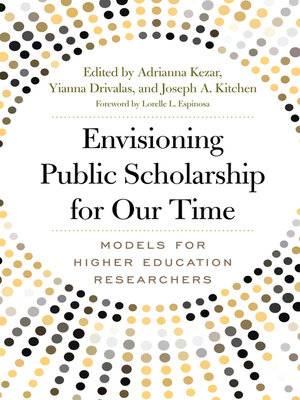Envisioning Public Scholarship for Our Time
ebook ∣ Models for Higher Education Researchers
By Adrianna J. Kezar

Sign up to save your library
With an OverDrive account, you can save your favorite libraries for at-a-glance information about availability. Find out more about OverDrive accounts.
Find this title in Libby, the library reading app by OverDrive.



Search for a digital library with this title
Title found at these libraries:
| Library Name | Distance |
|---|---|
| Loading... |
This book proposes a new paradigm of public scholarship for our time, one that shifts from the notion of the public intellectual to the model of the engaged scholar.The editors' premise is that the work of public scholarship should be driven by a commitment to supporting a diverse democracy and promoting equity and social justice. The contributors to this volume present models that eschew the top-down framing of policy to advocate for practice that drives bottom-up change by arming the widest range of stakeholders — especially members of marginalized communities — with relevant research.They demonstrate how public scholarship in higher education can increase its impact on practice and policy and compellingly argue that public scholarship should be recognized as normative practice for all scholars and indeed integrated into the curriculum of graduate courses.The chapters describe multiple types of public scholarship and different strategies that move beyond informing policymakers, faculty, and administrators to engage publics such as students and parents, media, the general public, and particularly groups that may have had little or no access to research. Examples include partnering with a community agency to design a research project and disseminate results; writing for practitioner or policy venues and magazines outside the traditional academic journals; serving on boards for national groups that impact decisions related to your area of research; and the use of social media.Whether scholar, director of graduate education, or graduate student of higher education, this book opens up a new vision of how research can inform practice that promotes the public good.







